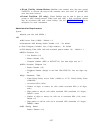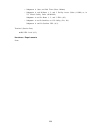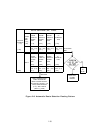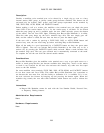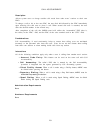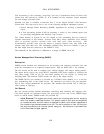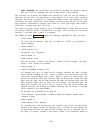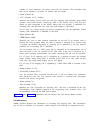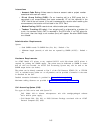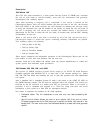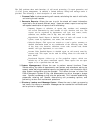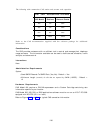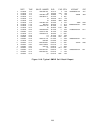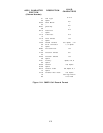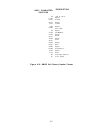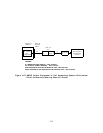Interactions
. Account Code Entry: Allows users to have an account code or project number
associated with each call record.
. Direct Group Calling (DGC): For an incoming call to a DGC group that is
connected to an announcement and never answered, “O” will be reported in the
“STN” field of the call record. If the call is answered by a station after receiving the
announcement, that station will be listed in the “STN” field.
. Modem Pooling: SMDR records do not reflect modem pool resource usage.
. Tandem Trunking (V2 only): If an outgoing call is originated by a tandem tie
trunk, the tandem trunk’s FAC is recorded in the STN field. If no FAC exists for
this trunk, then the 4-digit trunk number (9
XXX) will appear. No other SMDR fields
are affected.
Administration Requirements
System:
. Send SMDR records To SMDR Port (Yes, No) - Default = Yes
. Minimum length (seconds) of calls that are reported by SMDR (10-255) - Default =
40.
Hardware Requirements
An AT&T Model 475 printer or any standard RS-232 serial 80-column ASCII printer is
required for printing the SMDR output.
The printer must be dedicated to SMDR to ensure
that all calls are recorded. An AT&T Call Accounting System may also be used as the
SMDR output device (see below).
The printer can be directly connected to Port 2 of the Call Processor ZTN82 (V1) or ZTN128
(V2), or switched access (either on- or off-premises) can be provided. Connection is the same
as described for the SAT.
Detailed connection information is provided in Figures 2-13 through 2-17
Maximum cabling distances are provided in Section 5, “Technical Specifications.”
Call Accounting System (CAS)
Two types of CASs can be used with System 25:
CAS Model 100—A discrete microprocessor unit with cartridge-packaged software
.
and a built-in power supply.
.
CAS Model 200, 300, 500, or 2000 Software Package associated with an AT&T
Personal Computer (PC) 6300.
2-65



